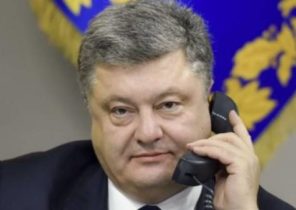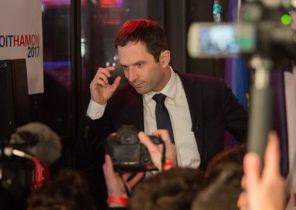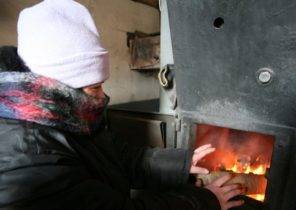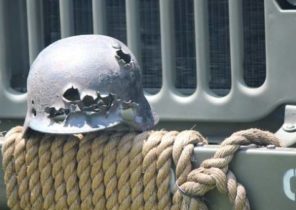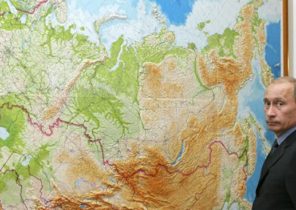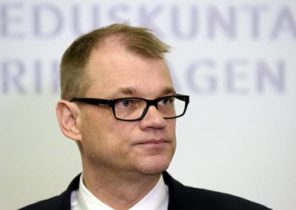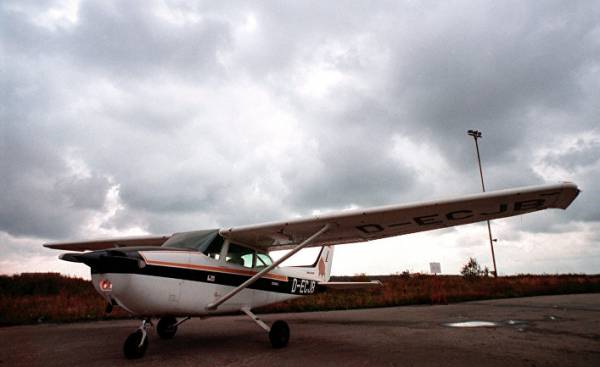
Frankfurter Allgemeine Zeitung: Mr. Kaminer how well You still remember my service in the army?
Vladimir Kaminer: I was drafted in 1986 and got to rocket defense in the second defensive ring around Moscow, about 200 kilometers from the capital. Moscow had three rings of defense, which was, of course, directed not against small planes, but against American missiles and bombers.
— What was Your task?
— In our division there were three missiles, radar and radio, which I was commanded: I was a radio operator, as all decent people. If You ask anyone what he was doing in the army, he will always say he was a radio operator. I was responsible for communication with other stations, there was one for every 20 kilometers. I don’t even know if I betray You now state secrets, but if so, then the Soviet Union has not existed for 25 years. Each unit is followed by a certain sector of the sky that none of the pigs just are not flying to Moscow.
— What are the flying objects You usually dealt with?
— With a large number of small planes, since each collective farm Chairman was flying somewhere in my car on the weekends, not having on Board radio. However, they never flew in the direction of the center, they moved out of the outskirts of the city or flew past him. And Mathias rust (Mathias Rust) was something else. The first time someone flew a plane right in the center, and it lasted quite a long time.
— What happened in Your division may 28, 1987, the day when the rust came?
— It was a time when I could relax. The Soviet army was built on this principle, that when two years of military service in the first year had how to plow, but then the second year it was possible to sleep. I was standing with a pillow in my arms when the alarm sounded. Then we all sat around the radar and wondered what we’re seeing here. The object is always there on the radar screen and disappeared again. But what could we do? No one wanted to take responsibility for the decision.
— What did Your superiors?
— My direct boss said after this: “If I was in the service, I would immediately hit this car!” But in hindsight everyone is smarter. I’m really glad that this rust landed in Moscow, since it also contributed to the overthrow of the Empire of the Soviet Union.
— How do You explain that the rust five hours in a carefully protected airspace and could land in the center of the Empire?
— I think it had nothing to do with a bad missile defence or incapable officers. The Soviet Union experienced its time. In this country nobody trusted and nobody wanted to take responsibility, even to bring down small civilian plane. After all, for decades preparing for a major war. Everything was subordinated to the military, there was not a single forest in which stood the rocket. Our enemy was the external world, we expected a large hostile army, missiles, bombers, in fact, Armageddon. Instead, came this young man from the suburbs of Hamburg, a kind of crazy dove of peace landed on the red square and said that because we say, neighbors. It was so unexpected, as if a foreign country was bombarded with flowers, cakes and ice cream.
Rust was disappointed at the failure of the disarmament negotiations between the United States and the Soviet Union and wanted to give a signal to his flight.
— When I look at this through the eyes of today, I would call it artistic action. I just think that Mathias rust was for the Soviet Union what today are Pussy Riot in Russia. Changes in Russian politics in recent years has also occurred because the regime is feeling increasingly exposed, including this small art events in the Church. She was a little grain of sand, which destabilized the bulk of lies and deception. Also it was and with Matthias Rust.
Gorbachev used this fact to clear the army from the hardliners, who opposed glasnost and perestroika. How are You perceived?
— For my second year of service in the army this has led to dire consequences. In a nearby bunker serving officer shot himself in the forehead. And in General was a number of cases of suicide, because hundreds of generals were dismissed. In our area it was stated on the modernization of the entire system, all the soldiers had to be replaced. While others were not. So we were put in buses and driven around Moscow. In the end we were once again in place of our location. But the mood was tense, to sleep in my second year of service did not have anyone.
— What did You think about the action of the rust?
— I’ll tell You quite honestly: I took this flight as a personal invitation.
Where?
— To The West. I thought that if he, despite all the missiles and the hostility that prevailed then between the two systems managed to just land in Moscow, and I can also go to Europe. For us, the Soviet Union was at that time as a closed space, and he showed us that it is still permeable. Mathias rust, for me, was like news from the future. The telegram, which briefly and clearly stated: people, you’re living in the wrong century.
— And Your colleagues too, so they take it?
— My colleagues felt that what I did Mathias rust, it was incredibly cool. We were all peers and peers of rust. We have always had problems, for example, we always collect money at the end of the week to buy the mess a jar of strawberry jam. It is, in fact, did not exist, to get there was difficult. And in General survival was worth the time and effort. And then we saw someone in a small plane, which he wasn’t even flying just across the border and landed in Moscow, abruptly landed on the red square and said, hi, my name is Matias, how are you?
— Was he not the intruder, but a hero?
— Yes! Of course, he put the Soviet army and the government in a ridiculous position. But he came not with weapons, but with a message of peace. I think that many older people considered him a psychopath, and a small part of the population thought he was a spy, but above all the young people looked at him as a hero. After all, he represented a totally different life. We looked quite childish with our strawberry jam. We grew up in a totalitarian state, in which it was necessary to constantly work out strategies to live with this regime in some compromise. And when we saw Matias, we realized that all those efforts were meaningless. This state simply has no that was not good enough. Why do we all the time been busting our ass?
— Is this the flight to the Kremlin is still a topic of discussion in Russia?
— No, Russia is a different country than the Soviet Union. A few years ago young men ran from the bridge, where he landed, paper airplanes, as a souvenir of this flight. I’d like to lay a few flowers on the anniversary of the flight.
— And You personally met with Matthias Rust?
— Yes, I was one lecture in his native Wedel. There I was told that in 1987 almost got hit by Mathias rust. Someone in the audience then informed the family that rust by chance came to visit, and during a break he suddenly appeared in front of me. He was tanned and was told that can’t decide where he should live — in Karibik or in the Baltic. I had the impression that he is still the same dreamy boys in 1987 on the red square.
Did You also at that time on this flight?
— To fly on the plane to Germany? Yes, in any case! If I had a plane license and do some concept, I also would have done it. But I have nothing like that and so I went in 1990 on a train to Berlin.
